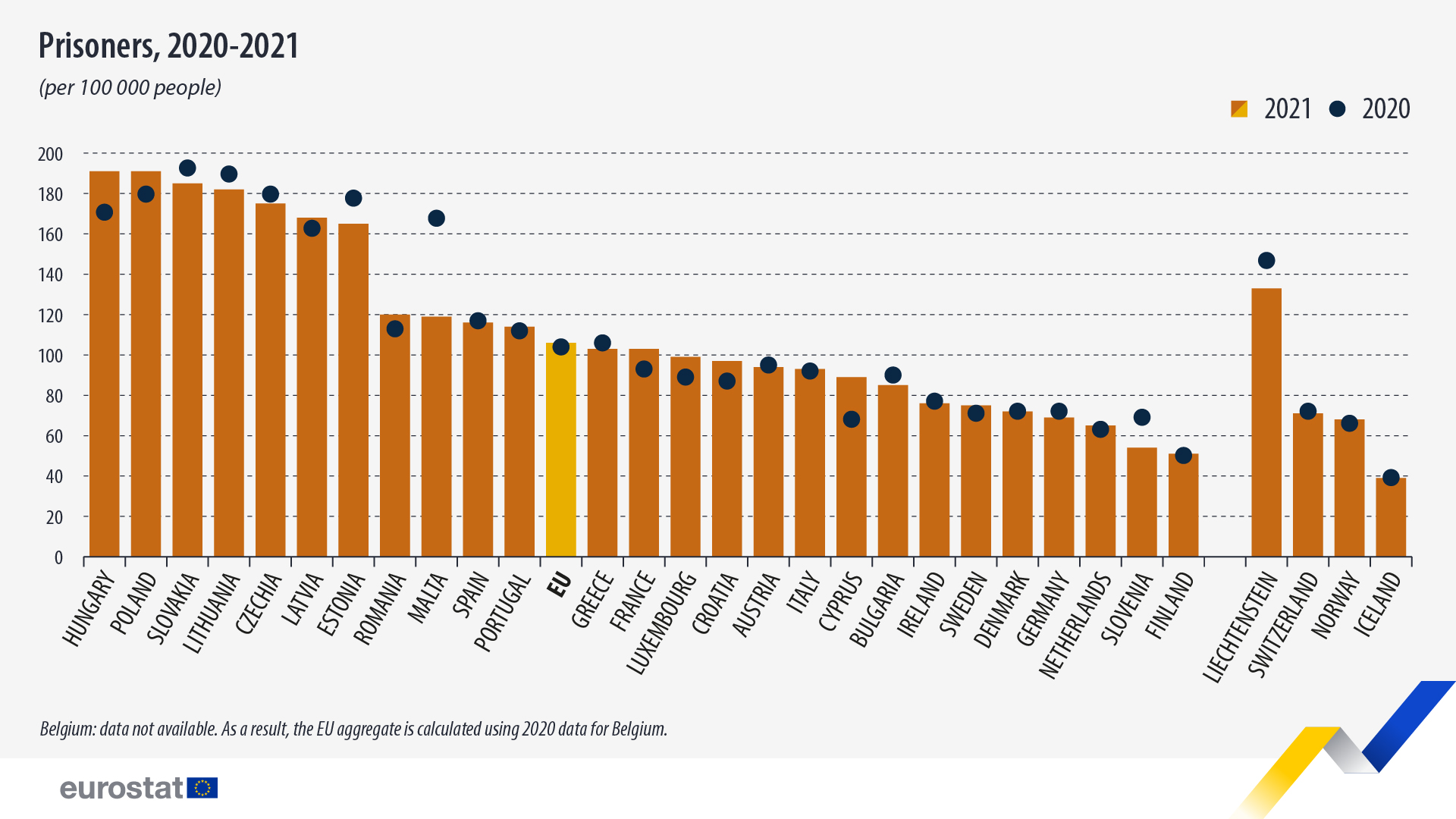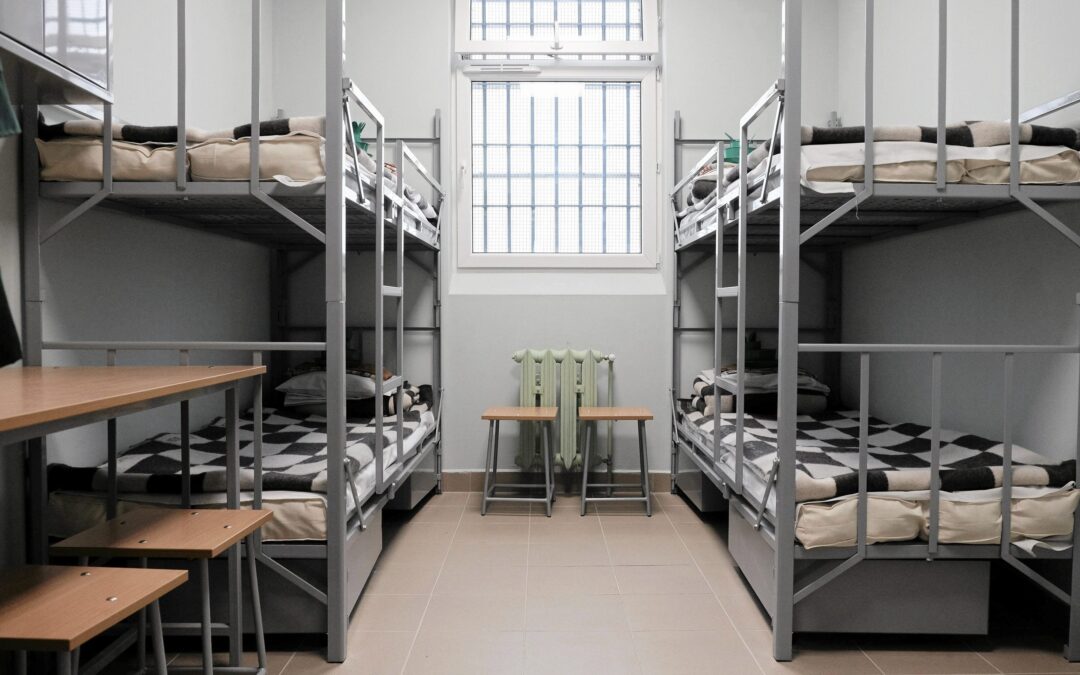The government wants to reduce Poland’s prison population by around 20,000 – a quarter of all those incarcerated – to tackle overcrowding, a senior justice ministry official has announced. She says the ministry will try to ensure that more prisoners are released early from their sentences.
She blamed the former ruling Law and Justice (PiS) party for the problem, suggesting that its sentencing policies were too harsh. However, two of her counterparts from the former PiS government have criticised the plans, saying they show disregard for the victims of crime.
🔴TYLKO U NAS. Wiceminister @MS_GOV_PL Maria #Ejchart: Więźniów w celach będzie o 20 tys. mniej
Kliknij w zdjęcie, by przeczytać więcej🔽https://t.co/JFocTmtny3
— Rzeczpospolita (@rzeczpospolita) March 18, 2024
“My goal for this [four-year government] term is to reduce the number of prisoners by 20,000,” deputy justice minister Maria Ejchart told the Rzeczpospolita newspaper today. “The first justified releases have already taken place.”
“Prisons are overcrowded,” she added. “The reason is primarily the severity of the law and the policy of the previous government, according to which all crimes should be punished with imprisonment.”
Poland had just over 78,000 people in its prison system as of May 2023, according to data from the country’s state prison service. According to EU-wide data from 2021 – the most recent published by Eurostat – Poland has the bloc’s joint-highest number of prisoners in relation to population, alongside Hungary.
Their figure of 191 prisoners per 100,000 people is around 80% higher than the EU average of 106. However, Poland’s rate also stood at 191 in 2015, when PiS took power from a previous government led by Civic Platform (PO), which is now again the main ruling party.

The Council of Europe’s Committee for the Prevention of Torture (CPT) in its annual reports has also regularly criticised Poland for failing to meet minimum CPT recommendations for the amount of space available to prisoners.
It recommends 4m² per prisoner in shared cells and 6m² for single-occupancy cells. Ejchart told Rzeczpospolita that reducing the number of people being held in Polish prisons will help the country meet these targets.
She added that by the end of January this year – just over a month after the new government came to power – she had already fulfilled a promise to end the practice of keeping more than ten inmates in a single cell.
Inmates at a prison in Poland have suffered beatings, suffocation and even waterboarding at the hands of guards, according to a report
Prosecutors are now investigating, but the prison authorities say they have doubts about the "objectivity" of the report https://t.co/EtFDYy9bq2
— Notes from Poland 🇵🇱 (@notesfrompoland) February 2, 2023
The minister said that a new criminal law codification commission formed earlier this month by the ministry “will work on changing the regulations” that have resulted in so many criminals receiving prison sentences. But in the meantime she said that they will find other ways of reducing the prison population.
“We want to expand the use of electronic surveillance,” said Ejchart, who estimates that this solution could already be used for around 4,000 prisoners.
She also said that she is “talking with prison directors” to encourage them to submit more applications for early release. Ejchart notes that when such applications are submitted, around 99% are accepted by the penitentiary courts that decide on early release.
Documents obtained by a newspaper have cast doubt on the case of a nationalist released from prison by the justice minister.
They indicate she and three men – one of whom is reportedly a neo-fascist – used violence against a participant in an LGBT march https://t.co/36iGMGU5vf
— Notes from Poland 🇵🇱 (@notesfrompoland) July 16, 2023
Asked by Rzeczpospolita if it was risky to seek to release 20,000 prisoners early, Ejchart did not answer directly, but said that “a change in the way we think about punishment and its implementation” was needed.
“In recent years, the purpose of punishment in Poland has been to permanently isolate criminals from society and to impose severe retaliation.” she said. But the “the purpose of punishment according to European standards is to change the prisoner [so] they return to society better.”
“My goal is for people to leave prison not worse, but better. That’s what prisons are for,” said the minister.
She admitted that such policies are not always popular with the public, but pointed to Norway as an example of how better prison conditions have helped it to have a reoffending rate among former convicts that is half the level of Poland’s.
Prisons in Norway have an emphasis on rehabilitation rather than retribution.
▪️Norway has the lowest reoffending rate in the world at around 20%.
▪️In the US, the reoffending rate is over 70%.
▪️In the UK, the reoffending rate is around 50%. pic.twitter.com/yqs0XiN33F
— James Melville 🚜 (@JamesMelville) December 19, 2019
Ejchart’s remarks were, however, criticised and ridiculed by two figures who served as deputy justice ministers until last year as part of the PiS-led government.
“It’s true that PO forgot about the 100 policies, lower taxes and so on,” tweeted Sebastian Kaleta, referring to policies that Prime Minister Donald Tusk promised (but failed) to introduce in his first 100 days of government. “But it did not forget about its most loyal prison electorate.”
“They want to release 20,000 people early,” commented Michał Woś. “PO’s core electorate in the prisons will certainly be happy. Those they harmed, not so much.”
Warto przy okazji zapowiedzi masowego uwalniania więźniów przypomnieć, że największe, rekordowe poparcie w wyborach do Senatu min. @Adbodnar uzyskał…
w Areszcie Śledczym na Białołęce.
Poparło go tam aż 90,25% głosujących. Idol więźniów i aresztowanych. https://t.co/ijUx2yVy0G pic.twitter.com/PKnfHhjTU8
— Sebastian Kaleta (@sjkaleta) March 18, 2024

Notes from Poland is run by a small editorial team and published by an independent, non-profit foundation that is funded through donations from our readers. We cannot do what we do without your support.
Main image credit: Patryk Ogorzalek / Agencja Wyborcza.pl

Daniel Tilles is editor-in-chief of Notes from Poland. He has written on Polish affairs for a wide range of publications, including Foreign Policy, POLITICO Europe, EUobserver and Dziennik Gazeta Prawna.



















